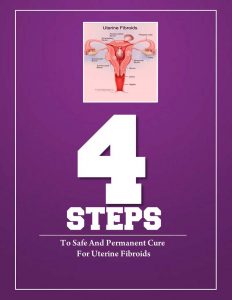Blog Post Contents
Farting Is Good For You [You Can Have More Of It, But…] – Part2
Farting Is Good For You [You Can Have More Of It, But…] – Part2, is the concluding part of the first part published 72 hours ago.
What Causes Us Too Much Farting?
Since most human beings fart between 5 and 40 times a day, anything above 40 can be said to be abnormal.
Interestingly, every one of us must have farted above what is normal, one time or the other.
True to false?
![Farting Is Good For You [You Can Have More Of It, But…] – Part2 fart | Farting Is Good For You [You Can Have More Of It, But…] – Part2](https://poorhealthsolutions.com/wp-content/uploads/2020/12/fart-1.jpg)
The question now should be: why do we sometimes fart excessively?
The causes of such abnormality include:
1. Hard-To-Digest Foods
Some foods are more difficult for your body to digest than others. These foods often contain high amounts of fiber or certain kinds of sugars that are hard for the body to process.
Some people may be more affected by some foods than others.
Some foods that commonly cause excessive gas include beans, lentils, cabbage, broccoli, cauliflower, bok choy, Brussels sprouts, bran, dairy products containing lactose, such as milk or cheese, fructose, found in some fruits and often used as a sweetener in soft drinks and candy, sorbitol, a sugar substitute found in candies and artificial sweeteners, carbonated beverages, such as soda and beer, wheat.
2. Digestive Disorders
Some digestive disorders that cause excessive farting include autoimmune pancreatitis, celiac disease, Crohn’s disease, diabetes, dumping syndrome, eating disorders, gastroesophageal reflux disease, gastroparesis, inflammatory bowel disease, irritable bowel syndrome, lactose intolerance, peptic ulcer, ulcerative colitis.
These digestive disorders interfere with normal digestion, placing stress on your digestive system, and often result in excessive farting.
3. Stress
Some people experience symptoms of irritable bowel syndrome — which includes excessive farting — when stressed.
Some people may also engage in habits that cause excessive farting when they’re stressed, such as smoking, chewing gum, eating sweets, or drinking alcohol.
4. Constipation
The more time food waste spends in your colon, the more time it has to ferment. This often leads to very frequent and stinky farts.
5. Changes In The Amount Or Type Of Bacteria In Your Digestive Tract
Antibiotics or consuming food tainted with bacteria can wreak havoc on your digestive tract, causing excessive farting.
6. Pregnancy
Alongside the amazing changes your body goes through when you’re pregnant, there are some unpleasant changes, such as increased gas production.
This change is the result of increased hormonal activity that tends to slow down your digestion, allowing more gas to build up in your intestines.
7. Menstruation
Hormonal changes during your period can also coincide with bacteria changes in your digestive tract that can sometimes lead to increased flatulence.
How To Stop Too Much Farting
Preventing increased gas may be as simple as adjusting your diet. If you’re lactose intolerant, your doctor will advise you to avoid milk-based products. Using a lactase supplement that provides the enzyme to make digesting dairy easier may also be an option.
To decrease your gas, you may want to stop drinking carbonated beverages.
If you’re especially sensitive to beans or other common culprits, eating smaller portions or swapping them out for other healthy foods may be options for you. Be careful not to suddenly boost your fiber intake, as that can also cause gas problems.
What To Do When Farting Becomes Problem
Like I mentioned somewhere above, farting is normal, while excessive farting is not.
This is because excessive farting can disrupt your life, as well as make you feel embarrassed or self-conscious, thereby getting in the way of you enjoying your everyday activities.
All you need to do whenever such abnormality occurs is to make some little changes to your diet and lifestyle, as mentioned above.
However, in cases where excessive farting isn’t easily managed with at-home remedies, you should see your doctor.
Be especially sure to see your doctor if your excessive flatulence is accompanied by:
• abdominal pain and bloating that doesn’t go away
• recurring diarrhea or constipation
• unexplained weight loss
• bowel incontinence
• blood in your stool
• signs of an infection, such as high body temperature, vomiting, chills, and pain in your joints or muscles.
THE END




